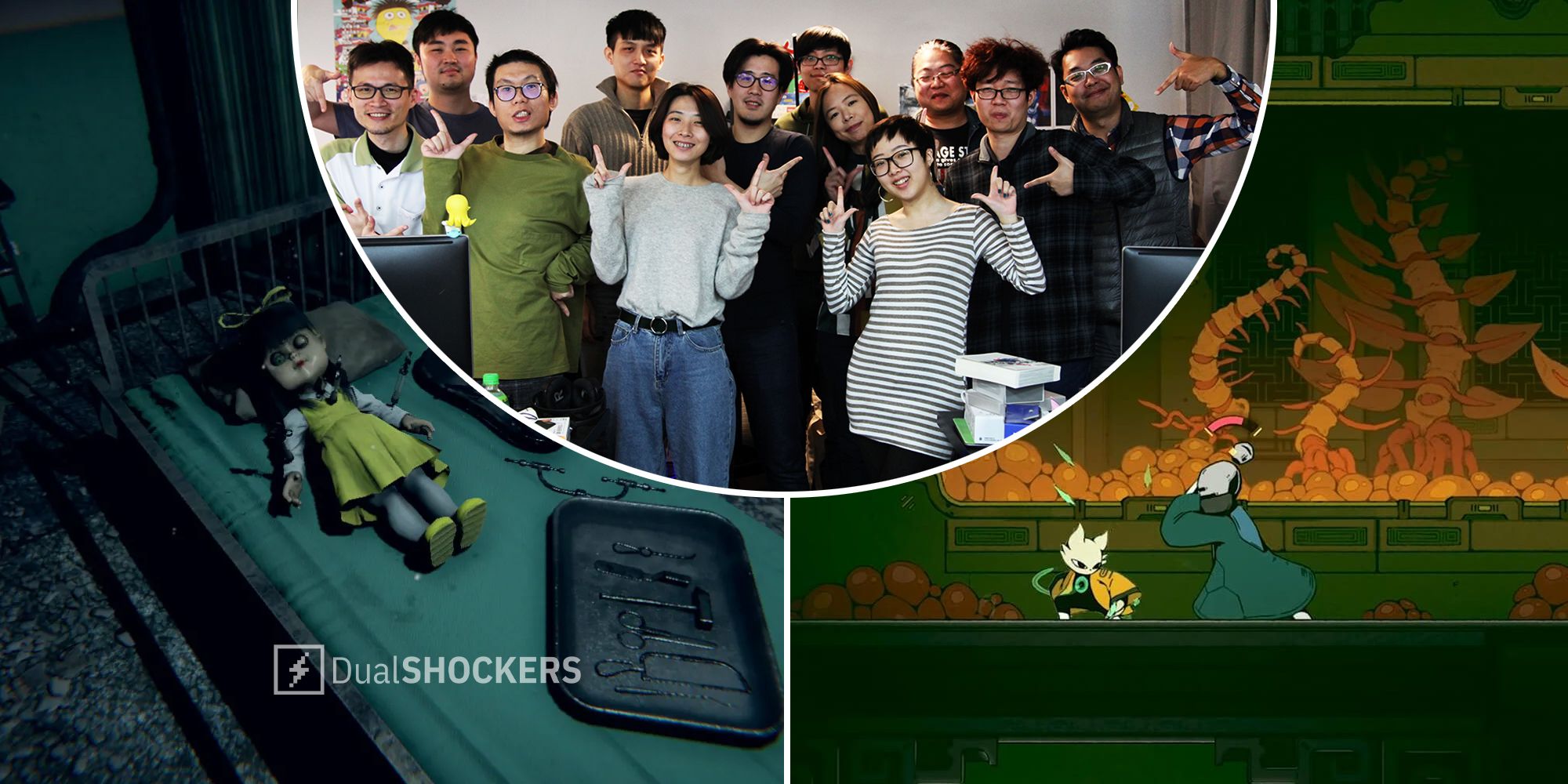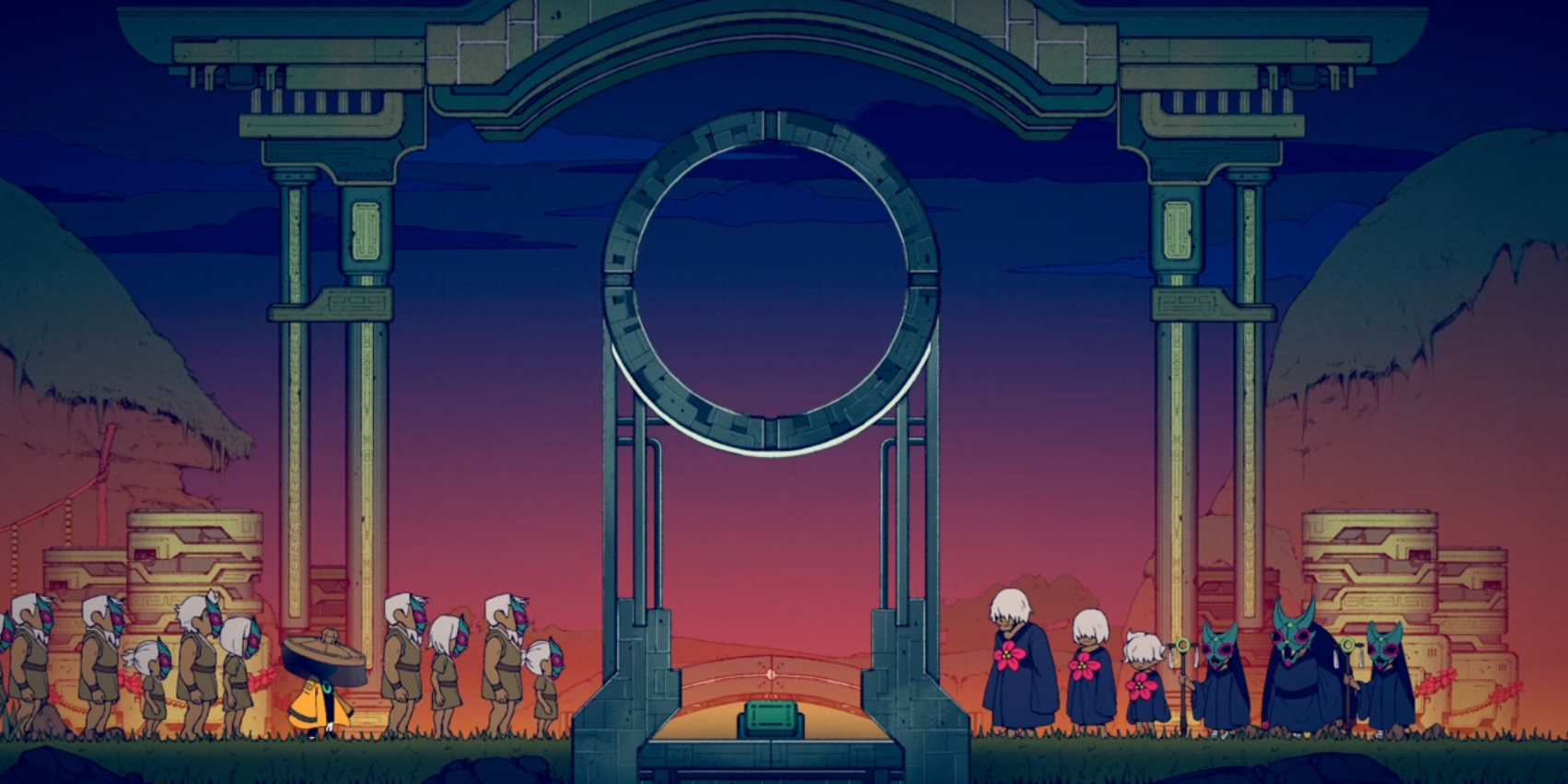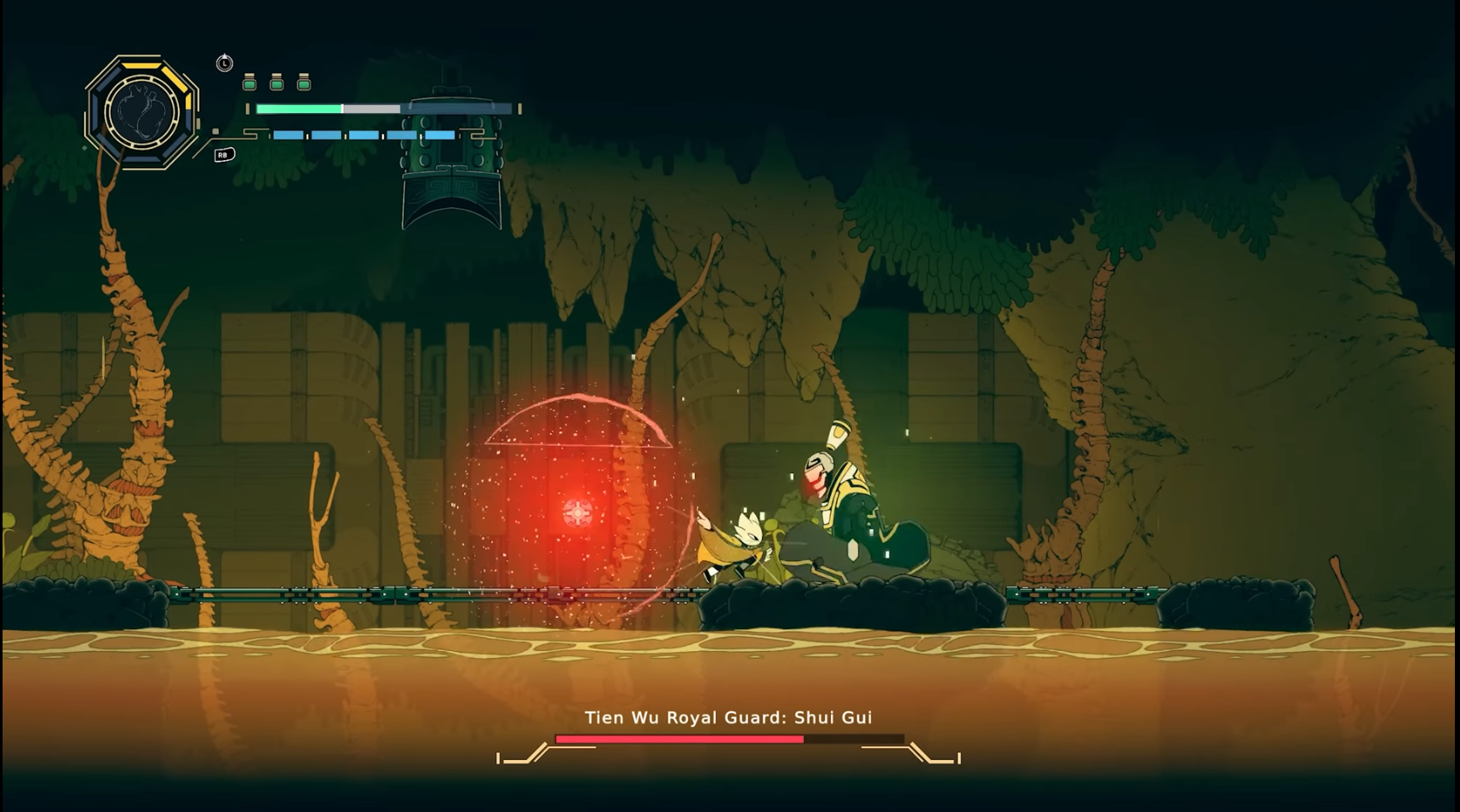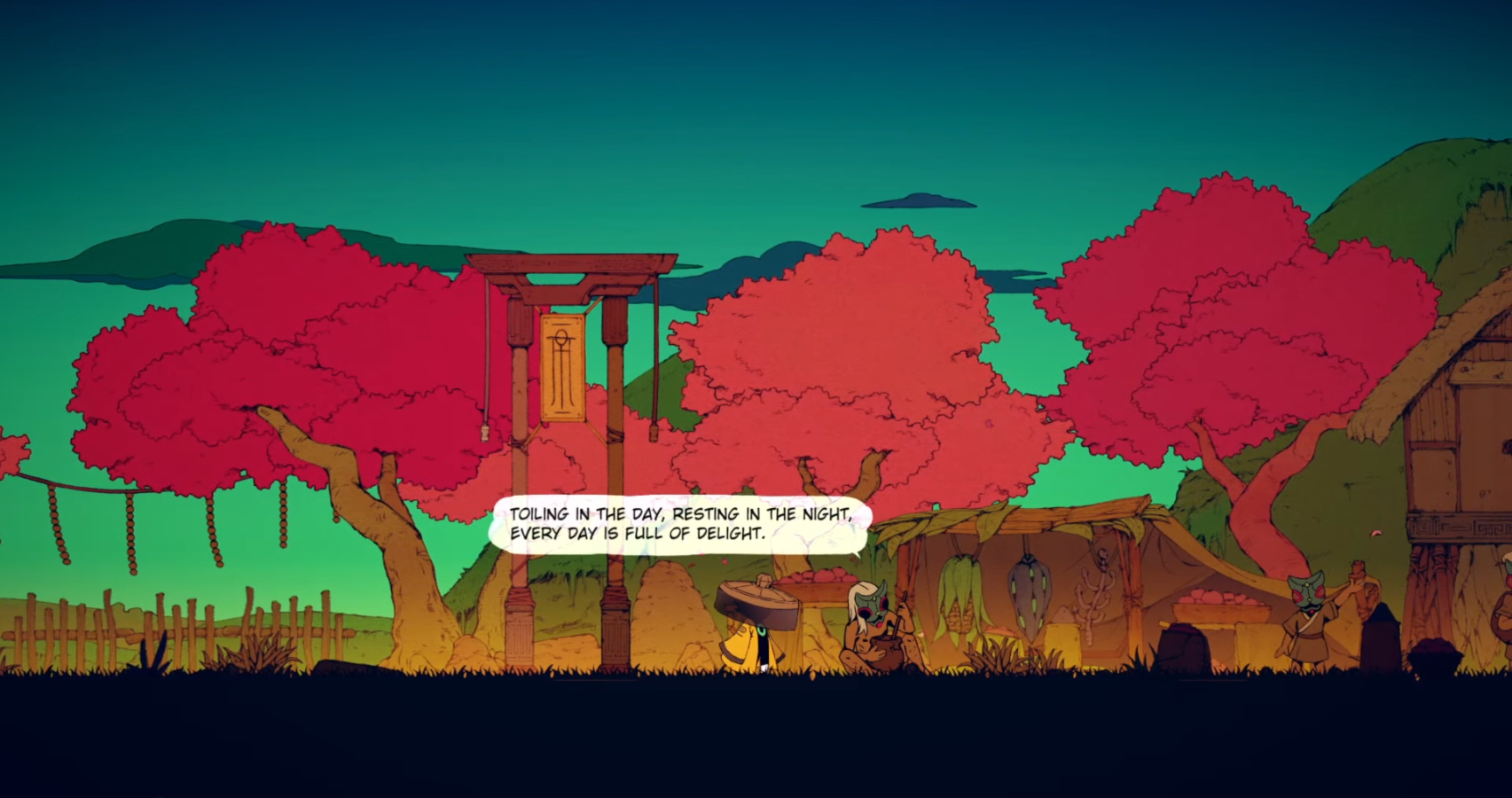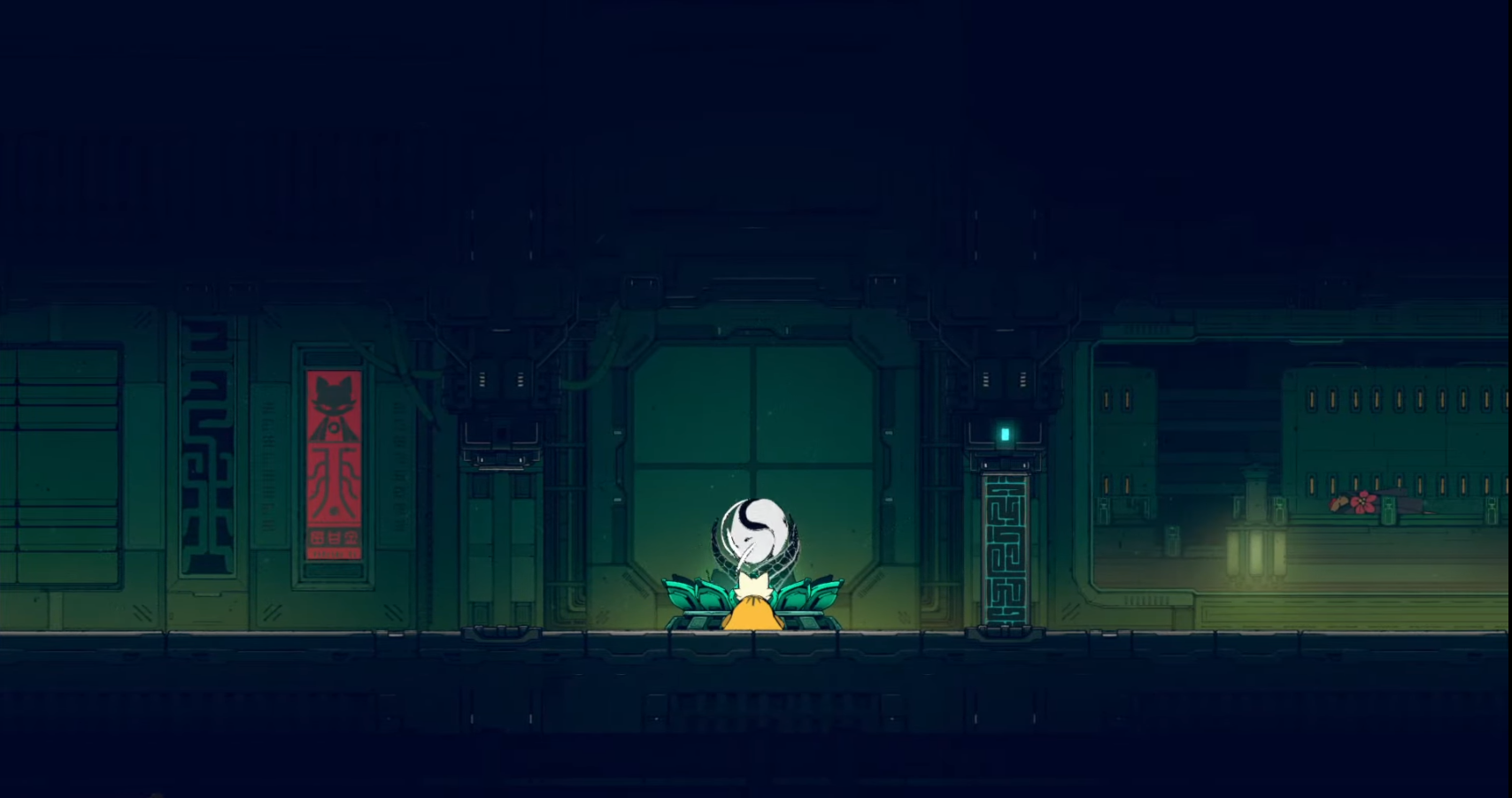It’s been a minute since we’ve heard from the Taiwanese game dev Red Candle Games, and understandably so. For the past three years, they’ve been enduring the long road out of hell due to the now-infamous incident of Devotion’s ridiculously petty pull from international shelves in 2019 by the Chinese government. Since that time, the RCG team was forced to not only promote the game strictly from the safety of their own website, but back up and consider their future.
Thankfully, it’s looking quite bright.
When I reached out for an interview, producer Vincent Yang and the team were knee-deep in the beta version of something completely different from their previous catalog: the gorgeously animated and Sekiro-inspired Nine Sols.
But before we unpack this upcoming gem, let’s rewind a bit, which is Red Candle Games’ MO. Their previous titles, Detention and Devotion, gave gamers a rare glimpse into bygone eras throughout Taiwan’s timeline, like the White-Terror of the 1960s, or the opulent excess of the 1980s. As integral as the settings may have seemed, the decision to place both Detention and Devotion in their respective decades was an afterthought.
“Detention and Devotion are both ‘story centered’, meaning we came up with a solid story first, then decided when was the most appropriate time period for that particular setting”, says Yang. As off-handed as it seemed, it was that direction that may have accounted for their initial success with Detention and subsequent endeavors.
Set in the oppressive time in Taiwan’s history where disillusionment with the current regime meant death, Detention not only exposed Western audiences to an exotic world they’d never imagined, but introduced elements of Taiwanese culture through the medium of video games.
The game’s tragic story features a side-scrolling point-and-click mechanic through which we became familiar with elements of Taoism: a religion steeped in superstition and folklore. Under the direction of "Coffee" Yao Shunting, 2016’s Detention became Red Candle Games' breakout hit. It was that successful jumping-off point that attracted a fresh wave of gamers, as well as Netflix. Detention was green-lit for a full-length motion picture, as well as a series. That success served a fulcrum for RCG next game: Devotion.
For anyone who’s played and finished the 80s-themed Devotion, the unanimous emotion is bittersweet. It's a time capsule that helped propel elements of Taiwanese culture in a Westward direction. However, one of the most memorable moments in the game is its devastating ending, driven home hard by the soundtrack. For this particular scene, RCG approached Taiwanese band, No Party For Cao Dong, a group also accustomed to tragedy after the suicide of its drummer in 2021. “Without much hesitation, the band accepted our proposal. The result, as we know it, was outstanding," Mr. Yang elaborates. "With their contribution, we gave Devotion a much more impactful ending than we had planned; kudos to them for sure.”
Devotion’s global success was punctuated by its controversy. During a section of the game, Chinese users were quick to spot a Taoist talisman hanging from the wall with a red stamp bearing the characters for Xi Jinping and Winnie the Pooh (an incendiary reference to the mainland's leader), as well as the Chinese expression for "moron". In no time, the game was bombarded with negative reviews on Steam from incensed Chinese players, which prompted Red Candle Games to immediately issue an earnest apology explaining the mistake. But the milk had already been spilled. The team were ultimately forced to pull the game from Steam and all related videos from Youtube, while CD Projekt-owned GOG caved to Chinese fans' ire and pulled it the same day it was announced for the platform.
As a result, RCG had no choice but to release the game exclusively on the Red Candle Games site, which while putting a dent in game revenue, somehow brought them closer to their fans, according to Yang. “The real purpose of setting up the eStore was merely to give our players a more direct way to support us rather than replace our other sales channel."
But that’s all history now. “After making two consecutive horror titles, our team felt a bit tired and burned out from creating similar horror experiences," says Yang. “We thought taking a break from this genre might help us rejuvenate.” At first glance, their latest project, Nine Sols, is an aesthetic breath of fresh air. It’s vivid hand-drawn artwork jumps off of the screen, in stark comparison with the darker moods of Detention and Devotion.
Moreover, the change of pace was also part of a new trajectory for the RCG team. “We've made it clear from day one that this upcoming title has a particular goal: to aim for the western market," Yang begins. "Nine Sols was then designed to break any potential language through intuitive and enjoyable game mechanics, and we hope by doing so, Red Candle can find more success in oversea markets.” Their newfound direction seems to be working so far. The Nine Sols Kickstarter campaign earned 455% of its goal with a total of NT$13,657,933 ($428,000) and the demo on Steam has already garnered positive reviews.
The early acclaim could be attributed to several factors: the breathtaking art style, exotic Eastern lore and a fighting style that may seem familiar to some. Nine Sols’ fighting mechanics are inspired by the timed attacks, parries and deletions used in Sekiro: Shadows Die Twice.
But other factors are in clearly in the mix. Yang himself reveals a major influence. “Hollow Knight, in my opinion, is one of the greatest games made in this era. In a way, it helped Metroidvania as a genre to transition into the modern era. And we find no reason not to learn from these great games before us.” This heartfelt adoration towards Hollow Knight and handful of influences ring clear once you encounter your first enemy, but make no mistake, Nine Sols is no tribute. It’s something else entirely. In a word: Taopunk.
Taopunk an original term coined by Red Candle Games that has come to encompass the style and theme of Nine Sols, sparked by the appreciation of 80s and 90s Japanese anime and games. “We were amazed by how well these artists blended traditional Japanese elements with futuristic settings," Yang expounds. "From feature films like Ghost in the Shell and Akira to games like the Megami Tensei series, one could easily find traces of Japanese culture/religion. Inspired by these creative works, our team started to explore the possibility of piecing together Taoism and Cyberpunk elements.”
It’s a formula that has worked so far. The infusion of distinct Taiwanese cultural components into each of Red Candle Game’s titles has proved to be one of their biggest strengths, especially for Western audiences. They have continually carved out a name for themselves not only as exceptional devs, but as hip ambassadors dispensing unique traditions and ways of life that would otherwise never reach users beyond the shores of Taiwan.
The impact of their efforts has even been displayed in occasional outpourings of thanks from overseas gamers. “We've received numerous feedback in the past that is both heart-warming and memorable” says Yang. “Sometimes we'd even receive letters from young players thanking us for making games like Detention and Devotion, so they had a chance to learn about Taiwanese culture and history.”
By merely being themselves—a Taiwanese indie dev—and using their own unique culture and perspectives to tell powerful interactive stories, Red Candle Games has earned a following at home and abroad that will hopefully expand with Nine Sols’ 2023 release.
The RCG team knows who they are, which manifests itself in each game they meticulously deliver. Perhaps the time spent studying the Tao has rubbed off the team, as their sense of self evokes an ancient passage: “Knowing others is wisdom, knowing yourself is Enlightenment”. If that’s the case, then Red Candle Games is well on their way.

